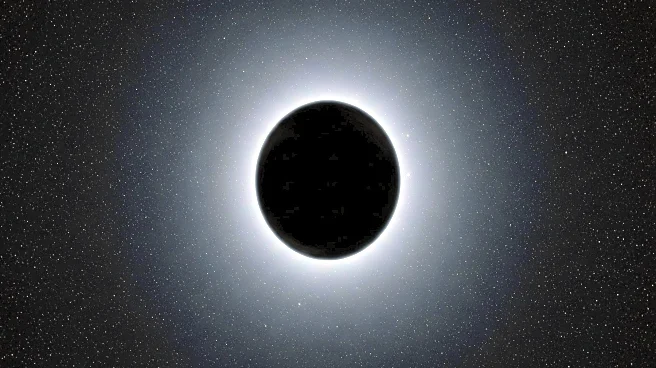What is the story about?
What's Happening?
Researchers Konstantin Batygin and Mike Brown from the California Institute of Technology have proposed the existence of a ninth planet in the solar system. This hypothesis is based on observations of Kuiper Belt objects that exhibit unusual elliptical orbits, suggesting the gravitational influence of a large, unseen planet. The proposed Planet Nine would be located far beyond Neptune, with an orbit that could take between 10,000 and 20,000 Earth years to complete.
Why It's Important?
The potential discovery of a ninth planet would significantly alter the current understanding of the solar system's structure. It could explain the peculiar orbits of certain Kuiper Belt objects and provide insights into the formation and evolution of the solar system. This hypothesis challenges the current planetary model and could lead to new explorations and studies in astronomy, potentially reshaping the criteria for defining planets.
What's Next?
Further observations and research are needed to confirm the existence of Planet Nine. Astronomers may use advanced telescopes and simulations to search for direct evidence of the planet. If confirmed, this discovery could prompt a reevaluation of the solar system's dynamics and influence future space missions aimed at exploring the outer solar system.
Beyond the Headlines
The debate over what constitutes a planet continues, as the potential discovery of Planet Nine could reignite discussions similar to those surrounding Pluto's reclassification. This underscores the evolving nature of astronomical definitions and the impact of new discoveries on scientific consensus.















